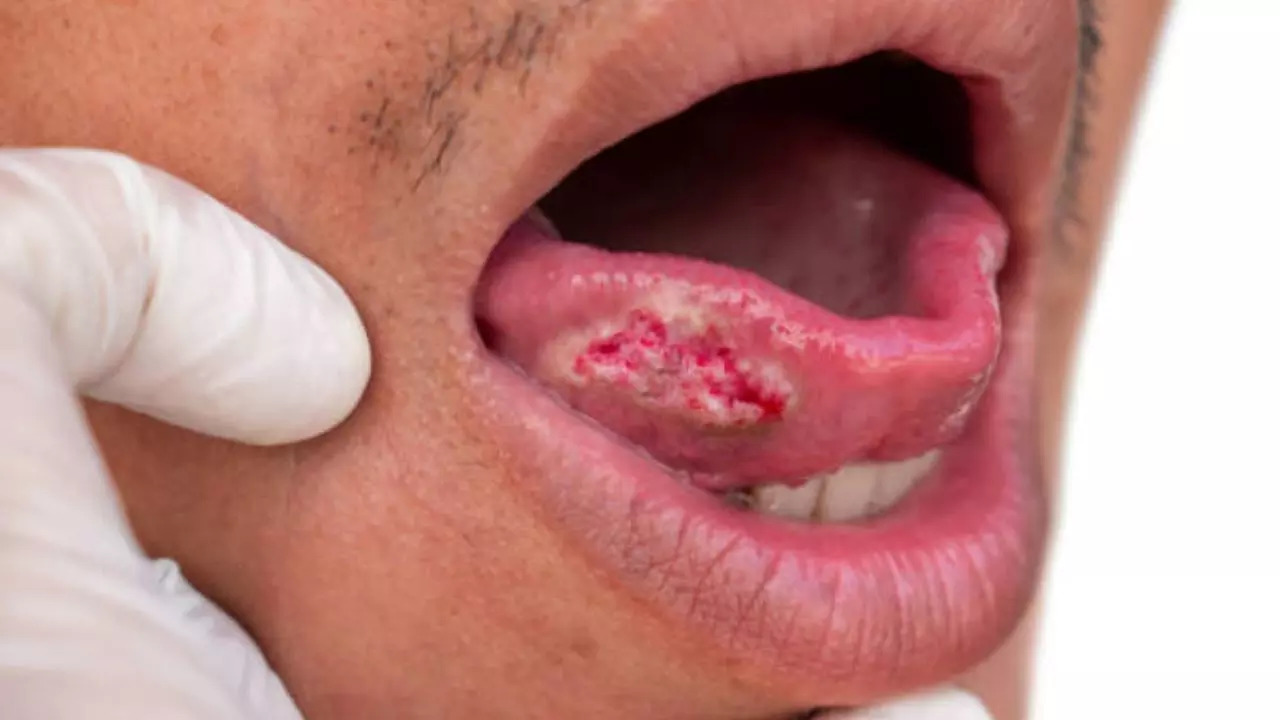-
news
-
Health
India leads South Asia in cases of oral cancer linked to smokeless tobacco and betel nut: Lancet study
According to the Lancet study, India leads the world in cases of oral cancer linked to smokeless tobacco and betel nuts, with 83,400 cases out of 120,200 globally. Consumption of betel nut and tobacco is a significant contributor to oral cancer, especially in South Asia. Read on to know more.

India leads South Asia in cases of oral cancer linked to smokeless tobacco and betel nut: Lancet study (Image credit: iStock)
At present their number is highest in India. mouth cancer matters related to the use of smokeless tobacco And according to a recent study published in The Lancet Oncology, South Asia accounts for 83,400 of the 120,200 cases reported globally in 2022 involving betel nut (betel nut).
The study highlights that smokeless tobacco products, such as chewed, snorted or sucked, account for more than 30 percent of all oral tobacco products. cancer Cases around the world. South-central Asia saw the highest numbers, totaling 105,500 cases, mainly driven by India’s 83,400 cases. Bangladesh reported 9,700 cases, Pakistan reported 8,900 cases and Sri Lanka reported 1,300 cases. Other regions significantly affected include Southeast Asia, which has recorded 3,900 cases spread across Myanmar, Indonesia and Thailand, and East Asia, which has recorded 3,300 cases, mostly from China.
In India, consumption of specific products such as betel nut (30 percent) and betel nut with tobacco (28 percent) were the leading causes of oral cancer cases in women. Other contributors include gutkha and khaini, each accounting for 21 percent of cases. Among men, the most important risk factors were khaini (47 percent), gutka (43 percent), betel leaf with tobacco (33 percent), and betel nut (32 percent).
Experts have raised concerns over the advertising practices of the betel nut industry, which often involves Bollywood celebrities promoting pan masala as a mouth freshener. Betel nut is linked to a debilitating condition called submucous fibrosis, which can lead to incurable oral cancer. The disease disproportionately affects the youth population, placing a heavy emotional and financial burden on families. Public health advocates are demanding strict enforcement of existing laws to control the sale and promotion of smokeless tobacco and betel nut products.
Globally, an estimated 300 million people use smokeless tobacco, while approximately 600 million use betel nuts. The highest rates of use are found in South-Central Asia, Southeast Asia, and Melanesia, reflecting cultural and economic factors driving consumption of these products.
Smokeless tobacco products vary in form and use. They are not burned like traditional cigarettes, but are chewed, sucked, snorted, applied topically, or even swallowed. Popular smokeless tobacco products include gutkha, tobacco mixture, crushed betel nuts, flavors and spices. Khaini, another common product, is made from sun-dried or fermented tobacco leaves. Pan masala, a notorious mixture of betel nut, tobacco, lemon, catechu and spices, is widely consumed in India and is often marketed as a harmless mouth freshener.
According to Dr. Harriet Rumge, a scientist with the Cancer Surveillance Branch of the International Agency for Research on Cancer (IARC) and lead author of the study, these products are available in many forms in different regions, which contributes to their widespread use.
The study also examined the gender-based burden of oral cancer. Globally, 77 per cent of oral cancer cases caused by smokeless tobacco and betel nut use were among men, i.e. 92,600 cases. The remaining 23 percent of cases are related to women, of which 27,600 cases are affected. While men generally consume smokeless tobacco and betel nuts more commonly, higher prevalence rates are seen among women than men in regions such as Southern Africa and Southeast Asia.
Get the latest news live on Times Now with breaking news and top headlines from around the world.
cancer


